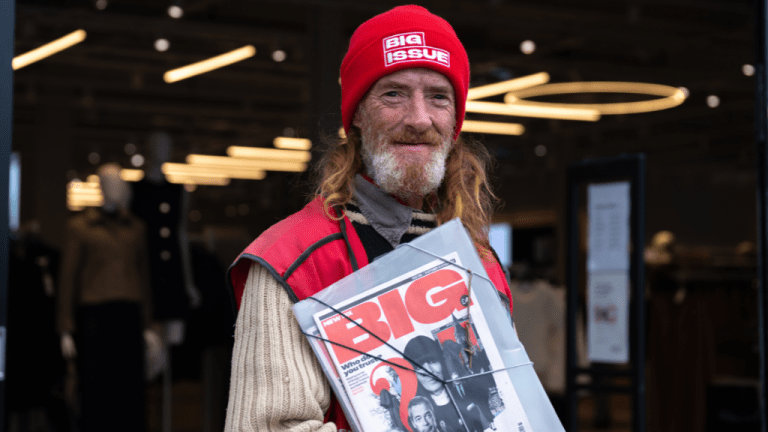The Black Cat cafe down a side street in Chelsea was at most times full of men eating food that would eventually destroy their health; big breakfasts off a greasy spoon menu. Doris befriended me because I was rough sleeping and my dishevelled and dirtied appearance brought out her humanity, 63 years ago. Surrounded by men from the roughest of places, doing the roughest of jobs, eating the worst of all food.
Even now after all these years I can’t pass by the little Chelsea street, the area now gentrified into hundreds of millionaires’ rows, without having a kind of pang of memory. A memory of the beauty of humans helping humans. Doris feeding me for free and plasterers, scaffolders, plumbers and drivers tolerating a boy from a Dickensian London. Dropped out of the class system that surrounded us. Sunk into street squalor.
Get the latest news and insight into how the Big Issue magazine is made by signing up for the Inside Big Issue newsletter
Street ruffians were almost as ancient as London itself. Each age threw up the troubled poor who lived in the cracks and canyons of a shambolic city. But by 1961 a rigid socialising of the streets, administered by an army of constables on the beat, meant neither begging or rough sleeping would be tolerated. This underclass that had thrived in Victorian and Georgian times was disallowed.
The First World War and the earlier Boer War, and the even earlier Crimean War, had brought government slap bang into contact with ‘the people’. Meaning that increasingly, because of needing large armies of thousands, and later millions of men, it was necessary to get involved in the people’s lives. The officer class could look after themselves. But the rank and file had to be healthy and with some form of education in order to fight the wars of the future. So hospitals and some kind of decent housing had to be given, as well as education.
Imperialism demanded a neater and healthier and more subordinate people. Government was in the face of the working classes, especially after hundreds of thousand were injured by the Great War. The laissez faire approach of Victorian London, where parks and back streets could harbour masses of homeless workers, was ended. Streets were cleansed. Mental asylums were filled with the mentally and physically ill. NFA (no fixed abode) was an offence leading to fines and imprisonment. The Vagrancy Act from 1824 was utilised.









